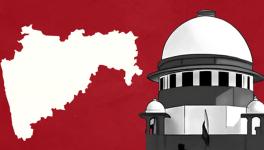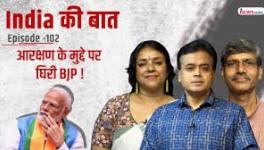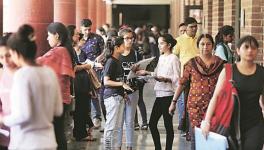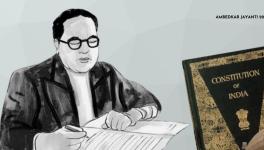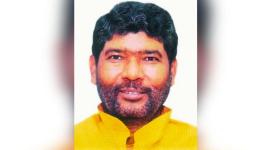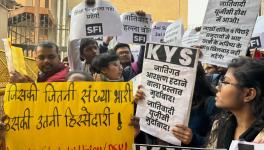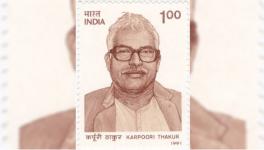Dear Media, Paswan Was More than Just a Weathervane
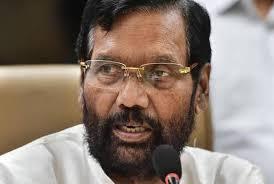
Image Courtesy: PTI
On 13 July 1977, Ram Vilas Paswan, newly elected the Member of Parliament from Hajipur, Bihar—the first of his four victories from the seat—spoke in Parliament about his shocking findings from a visit to Belchi village, the site of a recent massacre of Dalits. Paswan said, “...we [eight Congress, Left and Janata Party MPs including him] have brought from Belchi the bones of those who had been burned... I want to place those bones on the table of the House. These are the bones of eight [Dalits] and three other poor people who were set afire there.”
Paswan, who is being remembered after his death on 8 October for the seven ministries he held under different political dispensations—a weathervane who could predict to his advantage which way the political tide was turning—leaves behind a legacy of questioning the State, the caste bias of each of those governments and administrations, and of standing up for the Constitution and the cause of Dalits, in Bihar and nationally.
In his earliest speeches in Parliament in July 1977, Paswan decried the government’s report that said the deaths in Belchi were the result of a gunfight between “hardened criminals” on both sides. “This was a caste war—Dalit versus savarna war,” Paswan said in the Lok Sabha. “The fight was over the fact that the Dalits do not have land and the Mahatos [a title given to upper caste zamindars] are powerful, they have licenced weapons in each home...On the day we went there, the [government] inquiry was ongoing, and we saw the police threatening victims that if they give a correct account of the events, they would be ‘fixed’ later on...It is my belief that Naxalism is the result of the misdeeds of the Congress party. They may be ‘Naxals’ or anybody else, but until this country does not rid itself of fundamental problems, until then, one after the other, such organisations will keep coming up...”
The Ram Vilas Paswan I knew was not just a weathervane. We had met at a gathering of the Dalit Student Federation, of which I am a former president, in 2002. Since 1977 he has aggressively spoken for the downtrodden. What he has done to safeguard the Constitutional guarantees of the Dalits is the reason why he could rally together more Dalit, Adivasi, Members of Parliament to raise collective demands than any other leader.
When the Mandal award was being discussed in 1990, a journalist asked Paswan, why he, a member of a Scheduled Caste, cares about Mandal, which is meant to reserve seats for backward classes. He said that if Mandal is implemented, it would protect the reservation of Scheduled Castes and Scheduled Tribes. He understood that when a majority would get the benefit of reservation, it would be mainstreamed. Many social groups were socially, economically and educationally worse-off than groups designated as Scheduled Caste and Scheduled Tribe in states across India. Paswan supported Mandal for he believed that such groups, who remained outside the purview of reservation, would also get social justice. That is why he had the reputation of being a leader of the grass-roots.
In 1990s, when liberalisation, privatisation and globalisation arrived in India, he proposed that reservation be introduced in the private sector and tried to convince the government. A committee was formed with Sharad Pawar, Lalu Prasad Yadav and Paswan in it, which proposed private sector reservation.
Yet, when Lalu Yadav’s government opposed reservation in promotions, he held a meeting of Dalit and tribal MPs from across the country, from all political formations, creating a strong pressure group demanding an amendment to the reservation policy, so that reservations in promotions became a matter of policy as well. He played a crucial role in convincing the Modi government to amend the changing of the 200-point roster to the 13-point roster.
Whenever a constitutional matter arose, he raised his voice—such as when the Atrocities Act was amended by the court to require approval from the Superintendent of Police before arrests. Paswan could make a call for an all-party meeting, and all SC, ST MPs would respect his call. He was the only one who could mobilise them into jointly raising a constitutional issue.
In 1990, he played a critical role in bringing about a Bill that granted Dalit Buddhists reservation. I have been to Solapur and Nanded in Maharashtra, where there are many Buddhists, and seen the respect people have for Ram Vilas Paswan there. They see him as a leader who injected in them swabhiman and hisseydari—pride and demand for share in power. If you see politically active Dalit youth today it is because of Paswan’s work since the seventies, which was to inspire them politically. In the South, when he went to give a speech, crowds would line up hours in advance. So popular was he that tickets were given out to listeners.
In Bihar and elsewhere, he always said, “jab padheynge toh ladengey”—if we will be educated, we will fight. He told student leaders, “jhagda se nahi darna chahiye”—don’t be afraid to fight.
In 2005 he demanded a Muslim chief minister be appointed for Bihar. This was his way to lay out an agenda for the next election. He knew the Muslims are completely dependent on Lalu Yadav and his Rashtriya Janata Dal, and that until that dependency breaks you cannot break Lalu.
Muslims are technically a backward group, but socially they are very distinct from Dalits and Muslims. Since the nineties, a wall has come up between the two communities. Though otherwise the country works along caste lines, we see now that if in a constituency Muslims are more numerous, Dalits begin voting “as Hindus”. So in 2005 Paswan had taken a big risk—perhaps he had nothing to lose, but it was still a political risk considering how things were since the nineties between the two communities. Yet he won 29 seats in the October election that year.
In the 2014 election the LJP decided to go with Nitish Kumar after a meeting held in January. This was Ram Vilas Paswan’s idea. I say this because when a person is no more it becomes important to speak truthfully about them. But there was a reaction to LJP’s decision, and overnight the media declared that the party and Paswan have been saffronised. A meeting was called where Paswan spoke with youngsters, Dalit students and activists, and he convinced them the decision was right.
Then Nitish Kumar’s Janata Dal (United) decided to carve out the Mahadalit category, including all but four castes. The LJP took out a grand series of protest marches against this exclusion. The party showed its strength, and afterwards the Paswans [Dusadhs] ended up the sole caste excluded from Mahadalit category. Truth is that this was done to damage Ram Vilas Paswan had to be damaged, who was seen then as the hero of Dalits, not just Paswans.
Through all these transitions, Ram Vilas Paswan never became authoritarian within his party. Every decision was taken after consultation with party members, constituents. At least, he remained open to discussion throughout.
While he played a critical role in the maturing of Dalit politics in Bihar, his critics would rightly point out that he did not lay the ground work for a Dalit politics of the future. That the non-Dalit parties exploited Dalit voters prior to the 1990s, but now it was the Dalit parties, including LJP, which were taking their vote for granted. Paswan switched between opposing and supporting parties he called his opponents, Nitish Kumar, Lalu Yadav, the Prime Minister....
For the coming Assembly election, the LJP stand is clear. It is banking on the 100% transferability of the 6% Dusadh vote bank. It may also garner significant sympathy votes, but a lot depends on the strategy the party adopts. Of late, a number of BJP leaders had joined the LJP. A certain mass base had been building up. Paswan never groomed a viable set of second-rung leaders. He remained committed to Dalit politics; though in later years one could rings on his fingers that were supposedly meant to ward of this or that calamity. In 2009, I was told that on the brink of losing an election he had taken to praying to god, but when it turned out that victory was impossible, that was the end of his flirtation with religion. His son and MP Chirag inherits this mixed legacy, and it remains to be seen how close to the ground his ear is or if he is merely a Dalit “face”. He will have no time to mourn, for in politics the sword never returns to its sheath.
Prof Amit Kumar is former head, Sanskrit Department, Patna College. As told to Pragya Singh.
Get the latest reports & analysis with people's perspective on Protests, movements & deep analytical videos, discussions of the current affairs in your Telegram app. Subscribe to NewsClick's Telegram channel & get Real-Time updates on stories, as they get published on our website.









